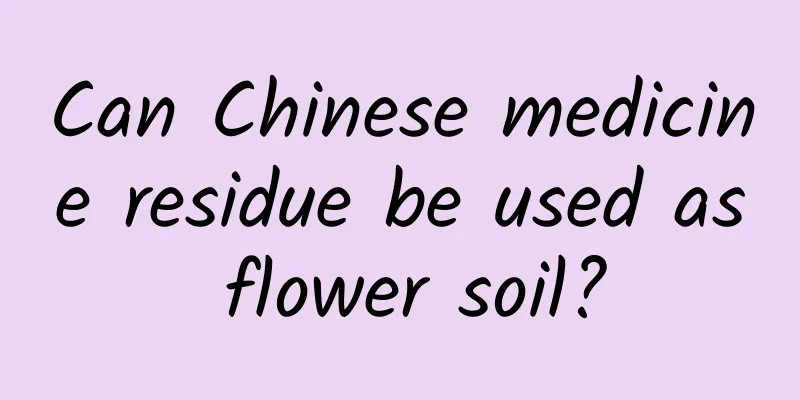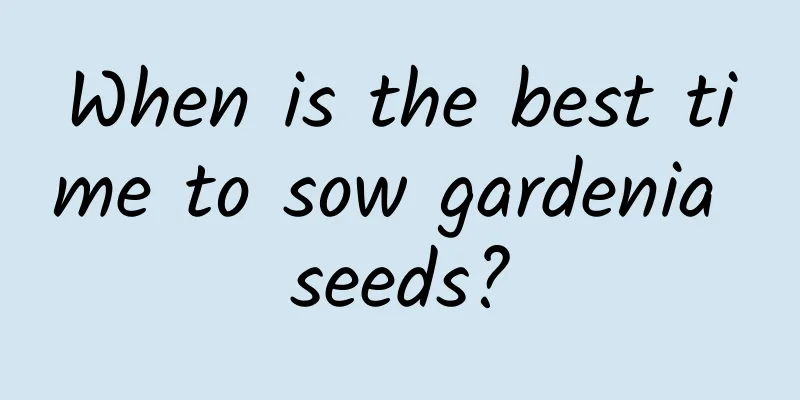Can Chinese medicine residue be used as flower soil?

Can Chinese medicine residue be used as flower soil?Chinese medicine residue can be used to make flower soil, which is a very good fertilizer for flowers. This is because Chinese medicine is mostly the roots, stems, leaves, flowers, fruits, and skins of plants, as well as the limbs, organs, and shells of birds and animals. It is rich in trace elements and minerals, which can promote the growth of the roots, stems, and leaves of plants, and can improve the air permeability of the soil. Although the nutritional value of Chinese medicine residue is high and just meets the nutritional needs of plants during growth and development, it should be noted that Chinese medicine residue cannot be used directly. It needs to be fermented in advance. If it is directly mixed with soil for watering flowers, it will burn the roots. Combined with microbial activity, it can cause soil hypoxia and cause the death of flowers and plants. How to use Chinese medicine residue to grow flowers1. Crush the medicinal residue The first step is to crush the medicinal residue. Grind the remaining residue of traditional Chinese medicine after cooking into powder. This will help to ferment quickly. In summer, it is best to ferment it for more than half a month. If you are watering delicate flowers and trees, it will take more than a month before use. In winter, fermentation usually takes two months, which is very troublesome. 2. Sealed fermentation Then put the crushed Chinese medicine residue into a large container, such as a jar or a bowl, add some garden soil and some water, seal it and keep it, and let it ferment for a while. 3. How to check whether fermentation is complete Generally, Chinese medicine residues have almost no smell after fermentation and composting. The material is black or dark brown, and it breaks into pieces when pulled or squeezed. It has a slightly sour, fragrant or earthy smell, and no odor. In this case, the flower soil is successfully made. Precautions for growing flowers with Chinese medicinal residuesWhen using, do not put too much Chinese medicine residue, just an appropriate amount will be enough. The amount put into the bottom of the pot as base fertilizer should not exceed one-tenth, otherwise it will be detrimental to the growth of the root system. Or mix the fermented medicine residue with the soil. It is best to loosen the soil frequently and add an appropriate amount of water, which will be conducive to the absorption of the root system. |
<<: How to keep carrot seeds and how to plant them
>>: Can coleus be hydroponically cultivated? Hydroponics cultivation method
Recommend
How many years does the red fruit tree bear fruit?
The red fruit tree has been planted for several y...
How many days does it take for coriander to germinate?
Coriander is a common seasoning vegetable and is ...
Black-eyed Susan cultivation methods and precautions
How to grow black-eyed Susan The best time to sow...
Can enzymes be used as fertilizers?
Enzyme as fertilizer Enzymes can be used as ferti...
Plum cutting propagation methods and precautions
Plum blossom cutting propagation method The best ...
Can creeping grass be hydroponically cultivated?
Can creeping grass be hydroponically cultivated? ...
Are fragrant flowers poisonous? Can they be grown at home?
1. Is it toxic? Touching the fragrant flowers is ...
What is a Poinsettia?
Poinsettia, also known as ivory red, old beauty, ...
Cultivation methods and precautions of blue snowflakes
Blue snow flower is a very beautiful flower . Its...
Can jasmine be exposed to rain? Are you afraid of rain?
Jasmine is water-loving and likes to grow in a re...
The language and legend of dandelions
Various flower language The yellow dandelion, its...
How much is the yield of green beans per mu? What is the investment cost of planting green beans per mu?
Green beans yield per mu The yield per mu of gree...
Carrot Growth Environmental Conditions and Characteristics
Carrot Growth Environmental Conditions and Requir...
How to grow winter peas
Peas are mostly planted in autumn, but a few are ...
What to do after the hyacinth flowering period
1. Pruning After the flowers fade, the branches a...









